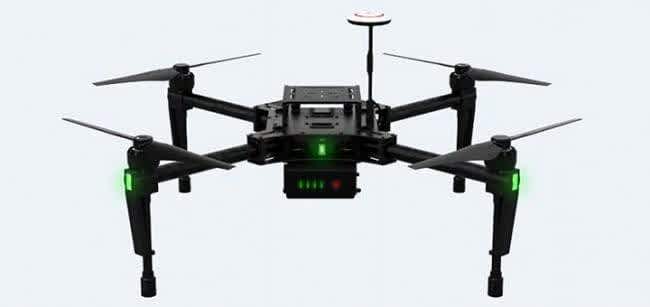
News
DJI Matrix 100 Rumour Mill (DJI Matrice 100)
The rumour mill is working overtime with news of a new quadcopter from DJI - the Matrix 100. Read more about the possible DJI Matrix 100 quadcopter. ... Read More
This is just rumours at this time. Please do not take this as gospel until Heliguy or DJI confirm. On Monday 8th June 2015, DJI announced the DJI Matrice 100. The rumour mill is working overtime with news of a new quadcopter - the Matrix 100. Could this be the next exciting drone from DJI? Considering it’s a rumour, we seem to know quite a lot already. The headline is that the new aircraft is more configurable with the option to change payloads, add an extra battery, change cameras, computers and communication equipment. matrix100-650x307.jpg It sounds as if it’ll be suited to a wide range of industrial applications rather than just video and photography. It’ll also appeal to the sort of pilot who wants to adapt and experiment.
What will make the DJI Matrix 100 different?
The features that will make this happen are expansion bays, which will take equipment to gather data for a wide range of complex tasks. There’ll be dual battery compartments which, if reports are be believed, could lead to impressive 40 minute flight times using two of the larger Inspire 1 style TB48D batteries. Bear in mind though that these times are obtained in ideal conditions. All these components can be slid around inside the frame to achieve perfect balance. The four arms can also be tilted to achieve greater yaw torque. Each of the lightweight, carbon fibre arms is said to contain a new vibration absorbing material, which can reduce unwanted movement of critical components while at the same time maintaining rigidity and precision. The DJI Matrix 100 is expected to have landing feet on each of the arms to absorb shock on impact. They’ll also be easy to remove for replacement or upgrade. A dedicated long-range remote controller will have a maximum range of 1.2 miles, a rechargeable battery and fully adjustable controls. It’ll link to your choice of tablet or phone, running either the DJI Pilot app or a specialist app developed with DJI’s SDK. The DJI Matrix 100 will also have a new N1 flight controller connected to an upgraded GPS system. A DJI X5 camera and DJI Lightbridge mean that HD quality video can be fed back to you from a maximum of 1.2 miles. The power will come from an upgraded version of DJI’s E800 propulsion system. Four brushless motors and electronic speed controllers will be integrated into the platform. The new aircraft is expected to have universal power and connection ports. That mean you’ll be able to plug-and-fly with almost any device. It means you can transmit data via the Matrix 100’s CAN and UART ports. There are two of each port on the platform, enabling you to mount and build a system that suits your purposes. Looking further into the future, this drone will be compatible with a wide range of DJI accessories including Guidance: DJI’s revolutionary sensor kit that helps your platform see its environment and recognize when obstacles or other objects are nearby. dji-guidance-600x330.jpg And the price for all this? No figures yet but it could be around the same as DJI’s Inspire 1, which is pretty good for something that promises be more flexible. I guess we will all find out on June 4th.
